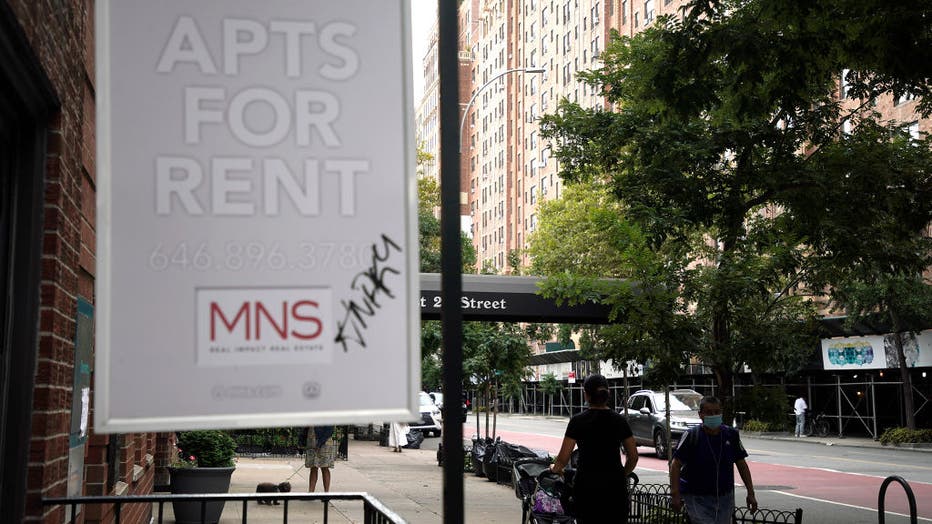New COVID-19 relief package brings help for renters and landlords

COVID-19 stimulus relief for renters and landlords
This new relief package is particularly important to landlords, many of whom have had no rental income for months.
On Sep. 4 of last year, the Centers for Disease Control and Prevention issued a temporary ban on the eviction of some renters who might be made homeless by the eviction process and thus might be more likely to transmit the COVID-19 virus to others in their new environs.
But on Dec. 27, 2020, President Donald Trump signed into law a new COVID-19 relief package. It has extended the original ban and has rewritten some of the rules for renters and landlords, so says our FOX 5 real estate expert John Adams.
According to Adams, many renters across the country are facing eviction, and small "mom-and-pop" landlords are hurting. Both groups will benefit from this legislation.
WATCH: FOX 5 Atlanta live news coverage
The U.S. is narrowly averting a potential eviction crisis at the start of the new year, and this new coronavirus relief bill includes funding for landlord assistance and the continuation of the nationwide eviction moratorium.
This relief package is particularly important to landlords, many of whom have had no rental income for months.
But they still have been required to continue making payments for property taxes, insurance, maintenance, repairs, and in many cases, pay for utilities being consumed by nonpaying residents.
Since the original CDC ban was instituted in September, the combined rent owed to landlords nationwide could be as much as $24 billion, according to a study by Global Investment Bank.
So the new bill provides $25 billion in emergency rental relief and a one-month extension of the nationwide eviction moratorium through Jan. 31, 2021.

People walk past an apartments for rent sign.
FULL CORONAVIRUS IN GEORGIA COVERAGE
Adams says both renters and landlords benefit. The $25 billion in rental assistance will be funded through the Coronavirus Relief Fund (CRF) and administered by the Treasury Dept.
Once the funds are disbursed to states, tenants will apply for aid through state or local relief agencies.
The funds can be used for past-due rent and overdue utility payments from the start of the pandemic, as well as future bills. And payments can be made directly to landlords instead of filtered through tenants.
To be eligible for the funds, someone living in the rental must show they have qualified for unemployment benefits, have lost part of their income or has experienced financial hardship because of COVID-19, or can show that they are at risk of losing their home
Sign up for FOX 5 email alerts
Landlords can be paid directly by state and local governments as long as tenants have signed off on the application. If landlords refuse the aid, renters can apply and receive the funds and then pay their landlords.
Households are eligible for 12 months of assistance but may receive up to 15 months if it is "necessary" to keep them in their home.
Adams says mom and pop landlords oversee the majority of the nation's 48-million rental homes, with Black and Latino landlords hit the hardest, turning to forbearance at higher rates during a pandemic that has disproportionately affected their communities as their residents are unable or have refused to pay rent under the eviction moratorium.
A recent report found that approximately 12% of landlords with a mortgage are in forbearance. Of these, 20% are Black and 14% are Latino, compared with 9% who are white.
The bottom line, Adams says, is that the CDC Agency Order in early September was designed to give relief to certain renters who had been impacted by COVID-19 and were facing eviction from their homes. Unfortunately, that order provided no help for struggling landlords. The new CoVid Relief Act will try to provide at least "some" financial relief to landlords as well as renters.
Download the FOX 5 Atlanta app for breaking news and weather alerts.

